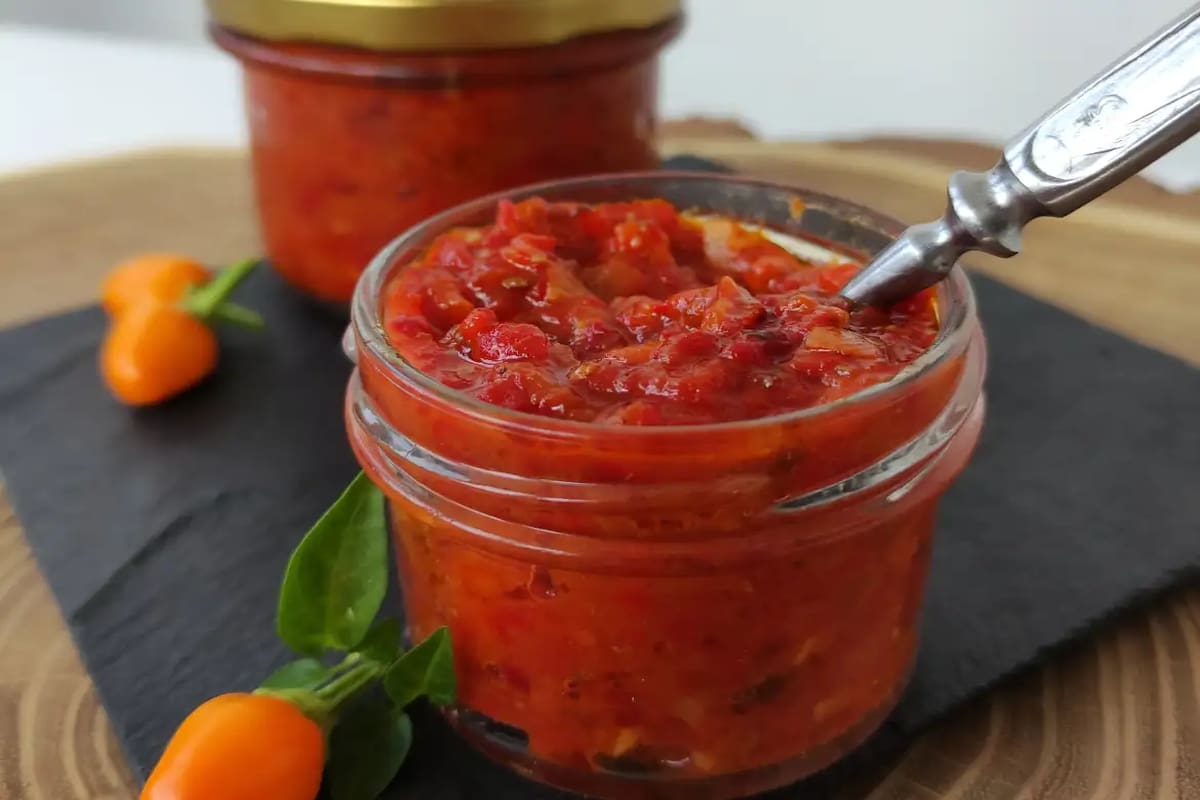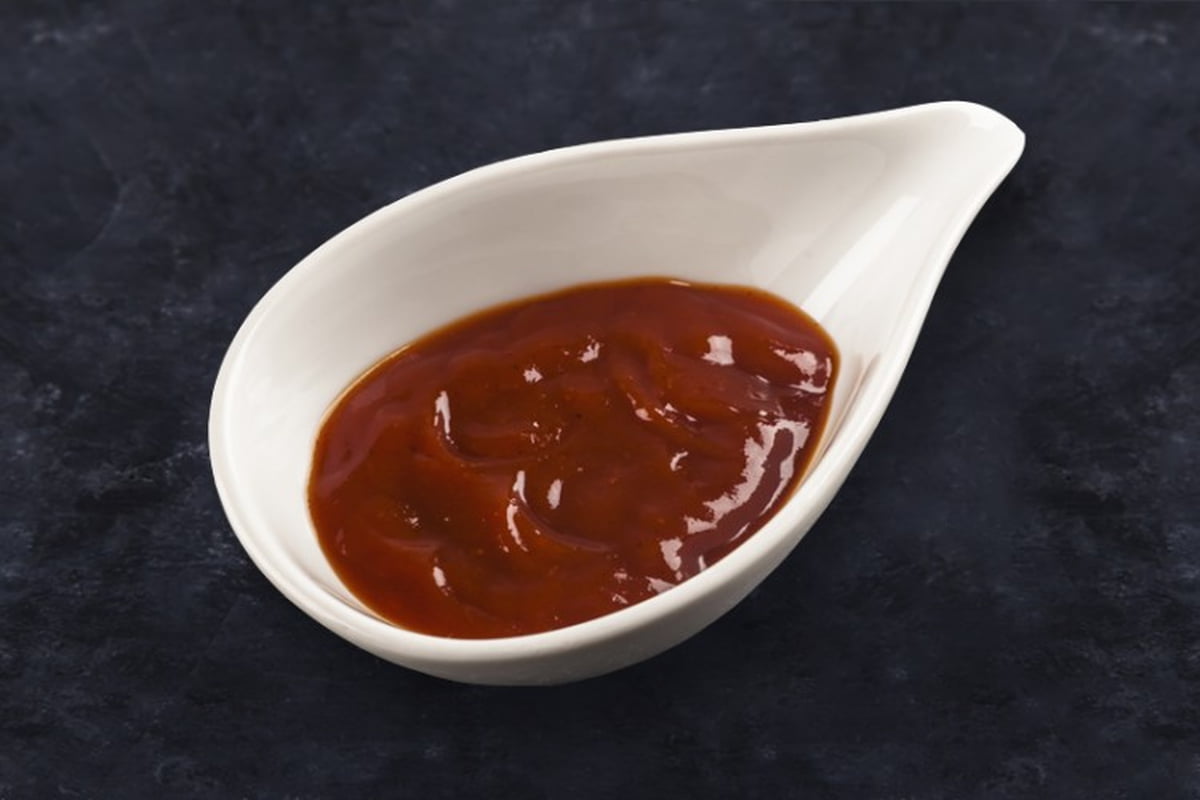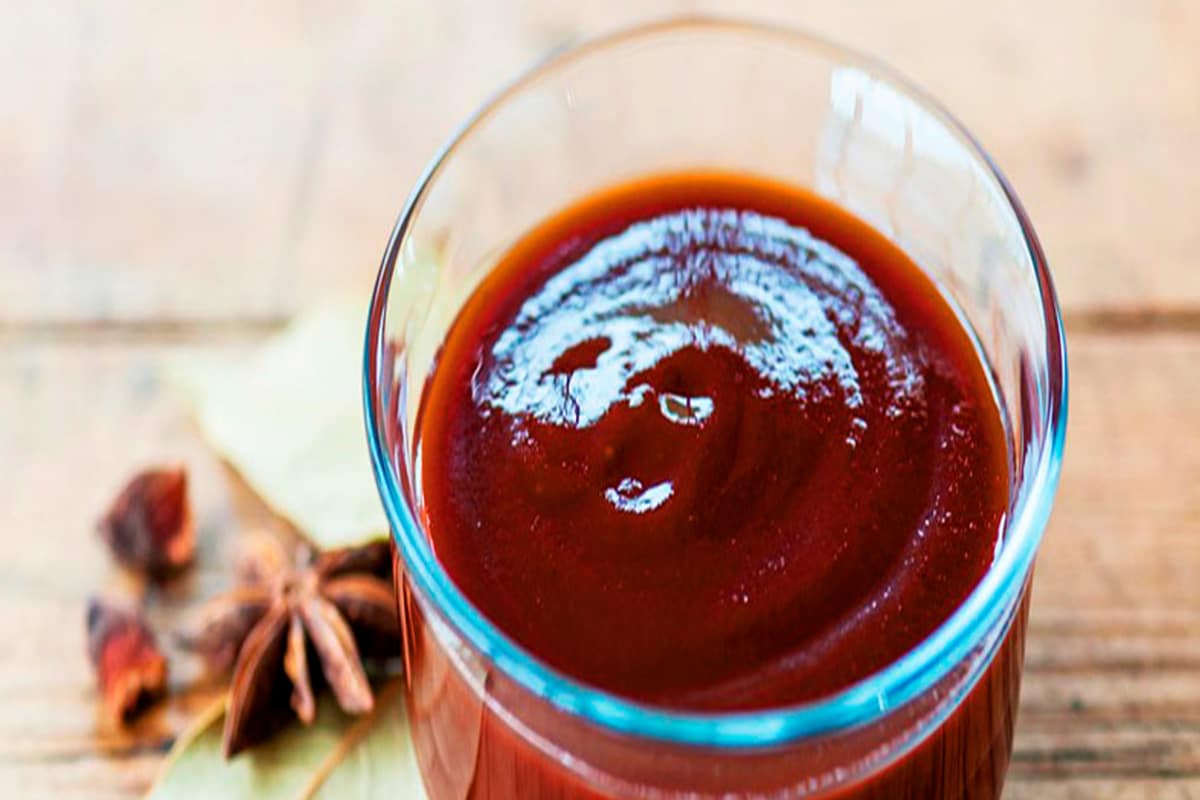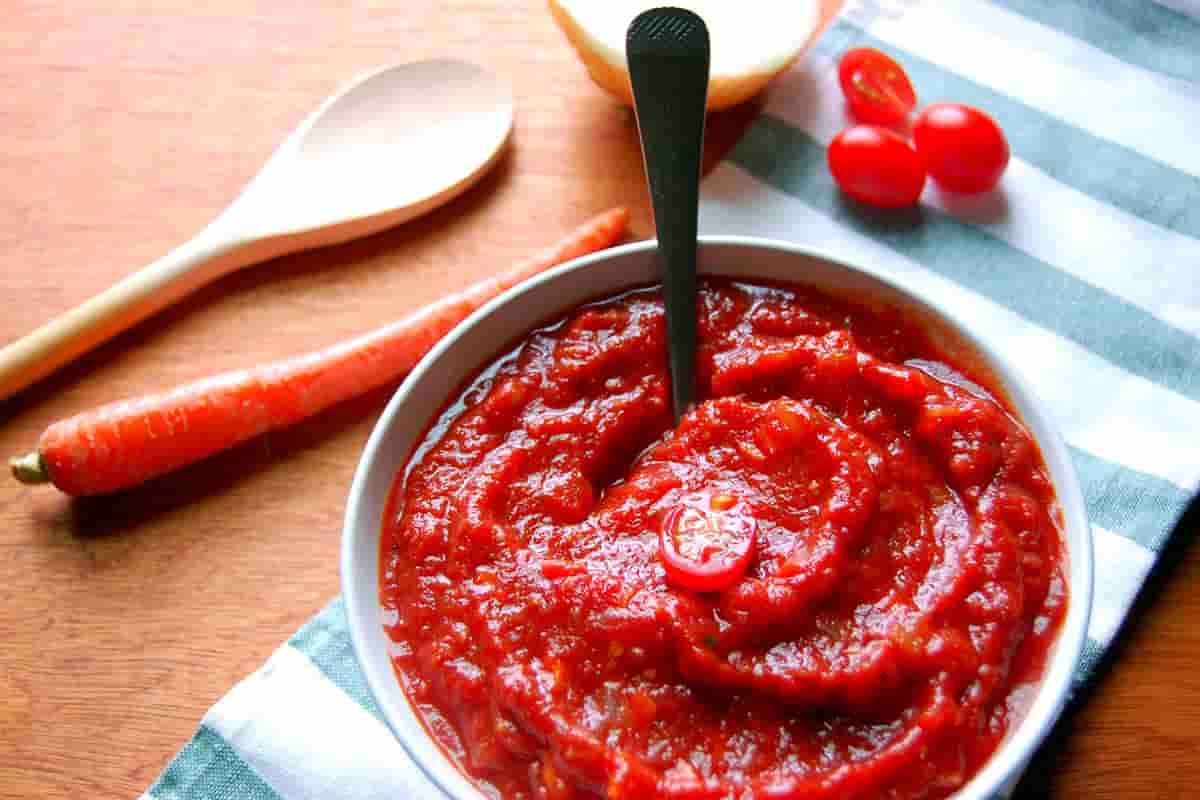it is possible for tomato paste (either salted or unsalted) to be both healthy and dangerous depending on your health condition. Let’s see how it can be healthy food and what its downsides are.
We are aware that tomatoes are botanically classified as fruits and not vegetables. Tomato paste is frequently used in our cooking, both as a seasoning and as a source of beneficial additional nutrients.
There has been a lot written about the advantages of including tomatoes in our diet, and it is quickly turning into a fashion trend. The question that needs to be answered is: what exactly is it about tomatoes that make them such a healthy food? And what exactly does it mean when it says that good eating is bad for your health?
The tomato and tomato paste as nutritious food:
Tomatoes, whether consumed as a food or as a fruit, are known to have qualities that have been scientifically demonstrated to reduce the chance of developing cardiovascular illnesses, diabetes, and certain types of cancer.
Tomatoes and tomato paste are excellent sources of vitamin C as well as other antioxidants that fight the free radicals that can lead to cancer. The majority of fruits and vegetables that are red in color contain a phytonutrient called carotenoid, which is present in this food as well.

The carotenoid lycopene, which is contained in tomatoes, has its health benefits increased when the tomatoes are cooked or subjected to heat processing. Just think about how much lycopene is in ketchup, tomato paste, and tomato sauce made from tomatoes!
Other diseases that can be avoided by eating tomatoes or tomato paste include the following:
Tomatoes and tomato paste include a carotenoid that has been linked to a reduction in the risk of colorectal cancer. This carotenoid works by preventing highly charged free radicals from causing damage to healthy cells in the stomach, colon, and rectum.
Lycopene has been shown to reduce systolic blood pressure and boost the effectiveness of medications used to treat hypertension, according to a recent study.
The tomato’s high fiber and water content can help relieve constipation. It helps control bowel movement and adds bulk to your stool at the same time.
Problems with the skin The vitamin C in tomatoes assists the collagen in the skin in rejuvenating the cells that have been damaged by exposure to the sun, air pollution, and toxins produced by the body.
Prenatal issues Tomatoes, which should be a regular part of a woman’s diet, are an excellent source of the folic acid that helps prevent birth defects in the growing baby.
Tomatoes’ folic acid helps prevent the excessive formation of homocysteine, an amino acid, which can be a contributing factor in depressive disorders. This amino acid disrupts the regular delivery of blood and nutrients to the brain, which can lead to neurological issues.
Additionally, it inhibits the production of hormones known as serotonin and dopamine, both of which contribute to a positive mood, resulting in a depressed state of mind.

The risks associated with eating an excessive amount of tomato or tomato paste:
Know the negative consequences that eating too many tomatoes can have on your health before you embark on a tomato binge. Tomatoes have a high acid content, which can aggravate gastroesophageal reflux disease in people who already have the condition. Eat a moderate amount of tomatoes or tomato paste if you struggle with this condition.
In the same way that certain individuals are unable to take tomatoes, they are also unable to tolerate the lactose that is found in milk. Both food intolerance and food allergies can have a variety of root causes, the most common of which is a lack of enzymes in the digestive tract. Intense stomach cramping, nausea, vomiting, and diarrhea are all symptoms of tomato intolerance.
If you have any of these symptoms after eating a tomato or a dish that contains tomatoes, you should avoid eating tomatoes or minimize the amount you eat tomato-based foods.
Tomato paste is a versatile ingredient that you should always have on hand in the kitchen, regardless of how frequently you prepare meals from scratch. Because it is merely the concentrated flavor of tomatoes, it possesses the same level of nutritional content as fresh tomatoes.
Tomato paste is an excellent source of antioxidants, and just one tablespoon provides 3 to 6 percent of the daily value recommendations for iron, potassium, and B vitamins. All you need is one tablespoon.
The first step in making tomato paste is to cook fresh tomatoes in water until they begin to break down into smaller pieces. After that, the flesh is squeezed to remove the skin and seeds, and it is then boiled for at least a few hours until the moisture in the flesh evaporates and turns into a thick paste. Salt and olive oil are normally included, however, some commercial goods include additional seasonings and sweeteners as well, such as high fructose corn syrup.
Typically, salt and olive oil are included. One can of tomato paste that is 6 ounces can be used to produce a pot of chili or stew that serves six people, which works out to 1 ounce of tomato paste per serving. The nutritional information presented is for one tablespoon, which is approximately half of the total amount.
Tomatoes are the best natural source of lycopene, which is a potent antioxidant that is a member of the vitamin A family. Lycopene is found in red fruits and vegetables.
According to a review that was published in November 2011 in the “Cochrane Database of Systematic Reviews,” despite its frequent appearance in the media due to the possibility that it could prevent prostate cancer, research has yielded contradictory findings.

According to the findings of a study that appeared in the issue of the journal “Neurology” that was released in October 2012, men who consumed a greater quantity of lycopene had a reduced chance of experiencing a stroke. Although there are no specific recommendations for the amount of lycopene that should be consumed daily, it is estimated that consuming between 4 and 8 milligrams would be sufficient to provide positive health effects. When you eat one tablespoon of tomato paste, you will receive 4.6 milligrams of lycopene.
Vitamin C:
Because of its antioxidant properties, it helps protect your body from damage caused by free radicals throughout your entire body, including giving antioxidant protection to the proteins and fats found in your brain.
The presence of vitamin C in your skin helps to limit the damage that might be caused by exposure to the sun. The recommended daily intake of vitamin C for men is 90 milligrams, while the recommended daily intake for women is 75 milligrams. The recommended daily amount for women who are pregnant is increased to 80 milligrams. Everyone who smokes requires an additional 35 mg daily. The amount of vitamin C included in one tablespoon of tomato paste is 3.5 milligrams.
Tips for Serving:
In a pinch, it can be used to make a basic tomato sauce, but if you don’t add any seasonings to it, such as garlic, onion, paprika, or oregano, it won’t have much flavor. Chili, stews, and soups all benefit from having tomato paste as their foundation. To make a robust vegetable soup, try combining tomato paste, vegetable broth, onions, corn, white beans, green beans, and various seasonings. Garlic, shredded carrots, chopped tomatoes, low-salt chicken broth, and tomato paste can be combined to make a topping for baked chicken.



